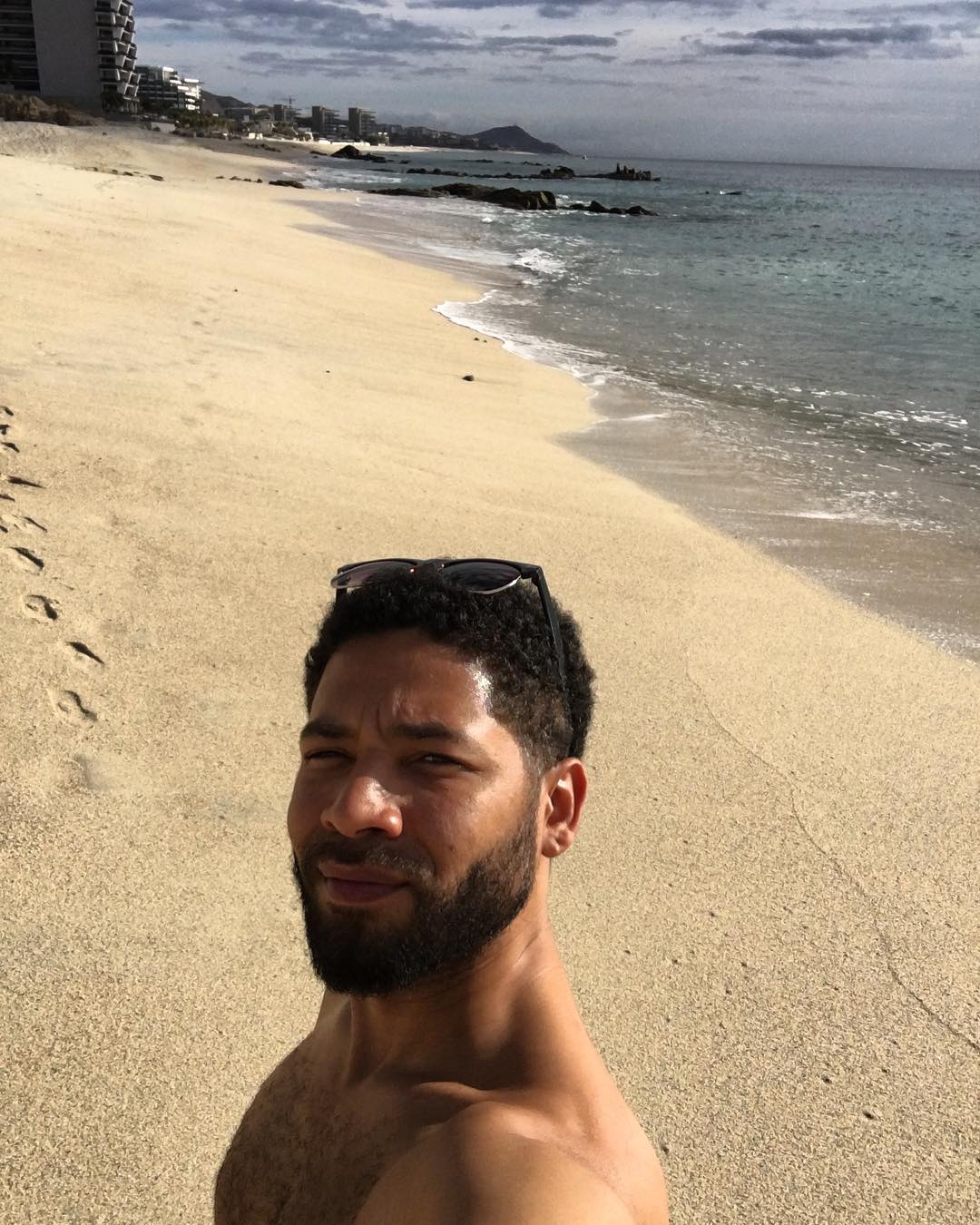Entertainment
Smollett case focused unwanted attention on Chicago police

But the charges were dropped without Smollett admitting wrongdoing, typically a requirement in such cases. (File Photo: @jussiesmollett/Instagram)
CHICAGO – The surprise decision by prosecutors to drop charges against Jussie Smollett angered Chicago’s police superintendent and mayor, who said the alleged hoax was costly to investigate and dragged the city’s reputation through the mud. It also focused attention on a police department that has struggled to reduce violent crime while defending itself against allegations of brutality.
Police and prosecutors continue to believe that the former “Empire” cast member hired two men to fake a racist and anti-gay attack and then lied about it.
But the charges were dropped without Smollett admitting wrongdoing, typically a requirement in such cases.
Instead, he stood in front of reporters Tuesday and insisted that he’d done nothing wrong and had been “truthful and consistent on every single level since day one.” His attorneys said his record had “been wiped clean.”
“This is a whitewash of justice,” said a visibly angry Mayor Rahm Emanuel, standing beside police Superintendent Eddie Johnson, whom he handpicked to lead the department in a shakeup after the shooting of a black 16-year-old Laquan McDonald by a white officer. “Where is the accountability in the system? You cannot have, because of a person’s position, one set of rules apply to them and another set of rules apply to everybody else.”
Prosecutors said they needed to focus their own resources on violent crimes, and Smollett’s case was treated like thousands of others that have been dropped through a deferred-prosecution program. Cook County First Assistant State’s Attorney Joseph Magats said Smollett forfeited a $10,000 bond payment and did community service.
“We are focusing resources combatting violent crime, gun crime and the drivers of violence,” Magats said, adding later: “This was not an exoneration.”
Johnson said Smollett still owes the city an apology – and that he should have been willing to prove his innocence.
“If someone falsely accused me I would never hide behind a brokered deal and secrecy. Period,” Johnson said.
Smollett, who is black and gay, told police he was physically attacked by two men who shouted anti-gay and racial slurs at him before beating him up and throwing some kind of chemical on him the early morning of Jan. 29. He also said his attackers shouted, “This is MAGA country,” an apparent reference to President Donald Trump’s campaign slogan, “Make America Great Again,” and looped a rope around his neck.
But police say brothers Abimbola Osundairo and Olabinjo Osundairo – bodybuilders and aspiring actors who Smollett knew from the “Empire” set and the gym – told them that Smollett paid them $3,500 to stage the attack because he was unhappy about his salary and wanted to promote his career.
Johnson said he was offended when detectives determined that Smollett allegedly lied, saying he’d taken “advantage of the pain and anger of racism to promote his career.” He also called it a “publicity stunt” that Chicago didn’t deserve.
Violent crime and police brutality claims have dogged Emanuel throughout his two terms as mayor, though he and Johnson have said they’re making progress in combatting it. Emanuel did not seek re-election and his term ends in May.
He fired former Superintendent Garry McCarthy in 2015, following the release of dashcam footage showing a white police officer fatally shot McDonald, who had only a small knife on him. He hired Johnson, a lifelong Chicagoan and career police officer, to lead the department in 2016, hoping he could help repair trust between the police and residents.
Johnson, who has pointed to double-digit decreases in gun violence over the past two years, said Smollett’s accusations were an undeserved distraction from the city’s efforts. While there has been progress in reducing violent crime, Chicago still has more murders than the larger cities of New York and Los Angeles.
Police reviewed video from more than four dozen cameras to trace the brothers’ movements before and after the reported attack, determining where they lived and who they were before arresting them a little more than two weeks later. They also reviewed in-car taxi videos, telephone logs, ride-share records and credit card records, according to a summary of the case released by prosecutors.
Emanuel said he felt Tuesday’s decision was unfair.
“There is no accountability then in the system. It is wrong, full stop,” said Emanuel. He also said the $10,000 paid by Smollett “doesn’t even come close to what the city spent in resources.”
“Our officers did hard work … to unwind what actually happened that night, he said. “The city saw its reputation dragged through the mud.”
Phil Turner, a Chicago defence attorney and former federal prosecutor with no ties to the case, also said it would be wrong to say leniency was warranted because no serious harm was done. “The reputation of the city has taken a tremendous blow,” he said.
Magats, the prosecutor, said he understands why Johnson and Emanuel are upset, but that the agreement was fair.
“I would just say they did a great job and thank them for the work they do.” Magats said of the police. “They did great work on this investigation.”
–––
Associated Press reporter Caryn Rousseau and Michael Tarm contributed to this story.





















